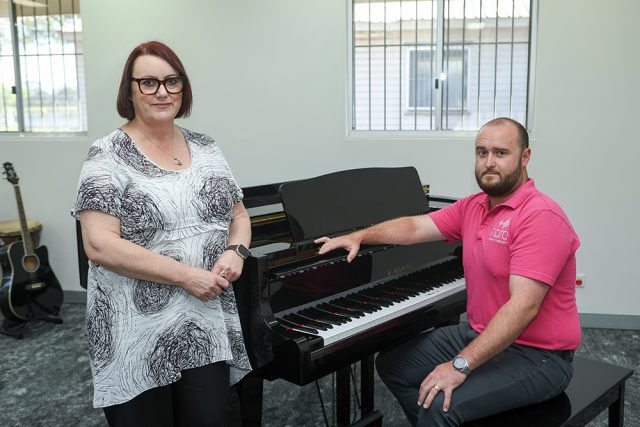Music therapists are demanding action after the National Disability Insurance Scheme (NDIS) proposed changes to funding they receive.
Practitioners raised alarm bells in November after the industry’s authority, the Australian Music Therapy Association (AMTA), discovered that the NDIS was preparing to remove music therapy from the Capacity Building – Improved Daily Living Category.
Since then, Federal Minister for the NDIS Bill Shorten has said the changes will see the standard rate practitioners can charge of $193.99 an hour only be continued for those who can show the therapies improve or maintain a participant’s capacity.
“If you currently have that [$194] per hour in your plan, it’s still there. When your plan finishes, we just want to see some evidence that in the future, continuing that [$194] per hour, that it’s improving or maintaining people’s functional capacity,” Shorten told Sky News.
“Now, in the event it’s not having that material effect, but it’s still a good thing for people to do, you’ll be able to charge a community rate of $68 an hour.
“I like art and music therapy, but we’ve got to make sure that it’s in the best interest of the participant.”
Last Friday, the National Disability Insurance Agency (NDIA), who run the NDIS, announced they would be commissioning an independent review of appropriate NDIS pricing for music and art supports.
Health Economist, Dr Stephen Duckett, will undertake the review, which will assess the evidence of the effectiveness of art and music therapy for people with disability, assess the qualifications and registration of music and art practitioners and assess the pricing of art and music support.
Belinda Leonard, CEO of Penrith music therapy provider Noro said her clinic works with thousands of participants each week with 350 of those being NDIS participants, all who take great benefit from the therapy.
“That was devastating news and news that was unexpected,” Leonard said.
“For the people that we work with that’s who I am the most devastated for because there are people that come here… that only come to music therapy and that is the thing that makes the big difference to them.
“If you take music therapy away it might not seem like a big deal from a policy perspective but for the individual and their family that is truly devastating. It is taking away something that supports them, and that might mean them being able to function in the community.”
The outcomes of music therapy can be impactful on the participants as they are encouraged to find new ways to overcome challenges, Leonard said.
“The people that we work with don’t realise how hard they work because music is intrinsically motivating, we can get people to do things that they ordinarily wouldn’t find easy to do,” Leonard said.
“That might be a child with a disability who has the inability to independently move their arms, so we might get them drumming, or a nonverbal client where music is the only way they can express.
“It is a really unique way of achieving capacity for people that participate. Music has a profound impact on people, and we use that in a therapeutic context to deliver some pretty amazing outcomes.”
Leonard said Shorten needs to take a closer look at what effect music therapy has on NDIS participants.
“Between Minister Shorten and the NDIA, I don’t think there is adequate understanding. I think there is an unconscious, or conscious, bias to art and music therapy,” she said.
“The more creative you get, the less it is valued yet we see in other settings like aged care reform that music therapy is being prioritised, it seems to not have equity when we start thinking about the NDIS. We think that they’ve got it wrong.
“I have the pleasure of seeing people come in and out of my building every day that get a huge benefit out of music therapy. Perhaps if the Minister could see the same thing, he might have more of a belief that this delivers long-term and sustainable outcomes.”
Making the situation harder come February is Minister Shorten will have officially retired from politics meaning he will not see the outcome of this decision.
Until then, any operational changes will not come into force until the review is completed and the relevant findings have been considered, which is expected in the middle of 2025.

Emily Chate
Emily Chate joined The Western Weekender in 2024, and covers local news - primarily courts and politics. A graduate of the University of Wollongong, Emily has contributed to The Daily Telegraph and worked as a freelance journalist.

